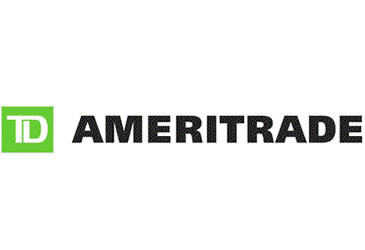
Profit and prosper with the best of Kiplinger's advice on investing, taxes, retirement, personal finance and much more. Delivered daily. Enter your email in the box and click Sign Me Up.
You are now subscribed
Your newsletter sign-up was successful
Want to add more newsletters?

Delivered daily
Kiplinger Today
Profit and prosper with the best of Kiplinger's advice on investing, taxes, retirement, personal finance and much more delivered daily. Smart money moves start here.

Sent five days a week
Kiplinger A Step Ahead
Get practical help to make better financial decisions in your everyday life, from spending to savings on top deals.

Delivered daily
Kiplinger Closing Bell
Get today's biggest financial and investing headlines delivered to your inbox every day the U.S. stock market is open.

Sent twice a week
Kiplinger Adviser Intel
Financial pros across the country share best practices and fresh tactics to preserve and grow your wealth.

Delivered weekly
Kiplinger Tax Tips
Trim your federal and state tax bills with practical tax-planning and tax-cutting strategies.

Sent twice a week
Kiplinger Retirement Tips
Your twice-a-week guide to planning and enjoying a financially secure and richly rewarding retirement

Sent bimonthly.
Kiplinger Adviser Angle
Insights for advisers, wealth managers and other financial professionals.

Sent twice a week
Kiplinger Investing Weekly
Your twice-a-week roundup of promising stocks, funds, companies and industries you should consider, ones you should avoid, and why.

Sent weekly for six weeks
Kiplinger Invest for Retirement
Your step-by-step six-part series on how to invest for retirement, from devising a successful strategy to exactly which investments to choose.
Competition among online brokers is tough -– which is good news for investors. As a group, they’re providing more services for customers than they did just a few years ago. We examined 11 firms on a variety of criteria, ranging from transaction costs and fees to research and mutual fund offerings. Take a quick glance at some pros and cons of each brokerage, and see which one offers the best of what you’re looking for.

Online Brokers at a Glance
PROS: OptionsXpress is tops in our overall ranking. This relative newcomer has a lot going for it. The brokerage boasts fast service, a wide selection of mutual funds, and low fund prices. Its brokers are quite knowledgeable, too.
CONS: Stock-trading commissions aren’t the cheapest (at $14.95), and the brokerage doesn’t offer any funds without transaction fees. (Note: All brokerage commissions listed in this slide show are for trades of up to 1,000 shares.)


Online Brokers at a Glance
PROS: If you have at least $250,000 in your Wells Fargo brokerage account, you can enjoy 50 free stock or fund trades yearly -– as long as you open a Portfolio Management Account, the company’s high-end checking account. Wells Fargo also scores points with us for paying decent interest on cash balances: Its money-market fund pays 4%.
CONS: Commissions outside the PMA program are on the high end, at $19.95. And of the brokerages we surveyed, Wells Fargo has had the most run-ins with clients and regulators

Online Brokers at a Glance
PROS: Firstrade is the Wal-Mart of online brokers -– no frills, but low prices on stocks and funds. Firstrade doesn’t charge anything to buy or sell any of its no-load funds. It also receives the clean hands award for fewest squabbles with regulators and clients.
CONS: Firstrade’s Web site is among the most difficult to use, and the brokerage offers little stock research.

Online Brokers at a Glance
PROS: If you crave stock research, Fidelity is by far the best choice. Altogether, you get as much research from Fidelity as you do from most full-service brokers. And you get free access to Fidelity funds. Fidelity’s Web site is also exceptionally easy to navigate.
CONS: Fidelity brokers didn’t perform well when we quizzed them with sample customer questions. The firm also receives low marks for execution because it routes a large percentage of trade orders to a firm it owns, instead of shopping trades around for the best possible price.

Online Brokers at a Glance
PROS: If you love Vanguard funds, this online broker is a contender. Its money-market fund pays a generous 4.4% interest on cash balances. And it minimizes nickel-and-dime fees. Vanguard also earns high marks for trade execution because it spreads trades among a variety of market participants.
CONS: Commissions are surprisingly high for Vanguard: $25 per trade for a $50,000 account; $22.50 if you have $500,000.

Online Brokers at a Glance
PROS: TradeKing offers the cheapest stock commissions around. This newcomer has been operating only since December 2005, and overall improvement is expected.
CONS: Stock research offerings are still slim. So is the firm’s selection of no-load mutual funds. Also be aware that the brokerage provides no cost-basis information, which could cause a headache at tax time.

Online Brokers at a Glance
PROS: Schwab is great for clients who want clear direction. It supplies plenty of stock research, with an emphasis on its own computer-generated Schwab Equity Ratings. Its brokers are the most knowledgeable we encountered. Schwab offers more than 5,000 no-load mutual funds, almost 4,000 of them with no transaction fee.
CONS: If you want to buy or sell a fund not included on Schwab’s no-transaction-fee list, you’ll pay dearly. Schwab also imposes several incidental fees: $95 to close your account and $2.50 to send you an old statement, for example. The company isn’t generous with interest on cash balances, either: If you total account is worth less than $100,000, your cash earns as little as 1%.



Online Brokers at a Glance
PROS: TD Ameritrade offers below-average commissions on stock trades and a solid selection of no-load mutual funds.
CONS: You’ll pay $49.99 each time you buy or sell a fund not on TD Ameritrade’s no-transaction-fee list. The brokerage pays no interest on cash balances under $2,000. And if you use margin -– that is, borrow money against the value of your account -– be prepared for a high interest rate. Also be aware that the firm doesn’t provide tax-basis information for clients with less than $50,000. Its Web site isn’t all that easy to use, either.
Profit and prosper with the best of Kiplinger's advice on investing, taxes, retirement, personal finance and much more. Delivered daily. Enter your email in the box and click Sign Me Up.
-
 How Much It Costs to Host a Super Bowl Party in 2026
How Much It Costs to Host a Super Bowl Party in 2026Hosting a Super Bowl party in 2026 could cost you. Here's a breakdown of food, drink and entertainment costs — plus ways to save.
-
 3 Reasons to Use a 5-Year CD As You Approach Retirement
3 Reasons to Use a 5-Year CD As You Approach RetirementA five-year CD can help you reach other milestones as you approach retirement.
-
 Your Adult Kids Are Doing Fine. Is It Time To Spend Some of Their Inheritance?
Your Adult Kids Are Doing Fine. Is It Time To Spend Some of Their Inheritance?If your kids are successful, do they need an inheritance? Ask yourself these four questions before passing down another dollar.
-
 The 24 Cheapest Places To Retire in the US
The 24 Cheapest Places To Retire in the USWhen you're trying to balance a fixed income with an enjoyable retirement, the cost of living is a crucial factor to consider. Is your city the best?
-
 5 Stocks to Sell or Avoid Now
5 Stocks to Sell or Avoid Nowstocks to sell In a difficult market like this, weak positions can get even weaker. Wall Street analysts believe these five stocks should be near the front of your sell list.
-
 Best Stocks for Rising Interest Rates
Best Stocks for Rising Interest Ratesstocks The Federal Reserve has been aggressive in its rate hiking, and there's a chance it's not done yet. Here are eight of the best stocks for rising interest rates.
-
 The Five Safest Vanguard Funds to Own in a Volatile Market
The Five Safest Vanguard Funds to Own in a Volatile Marketrecession The safest Vanguard funds can help prepare investors for market tumult but without high fees.
-
 The 5 Best Inflation-Proof Stocks
The 5 Best Inflation-Proof Stocksstocks Higher prices have been a major headache for investors, but these best inflation-proof stocks could help ease the impact.
-
 5 of the Best Preferred Stock ETFs for High and Stable Dividends
5 of the Best Preferred Stock ETFs for High and Stable DividendsETFs The best preferred stock ETFs allow you to reduce your risk by investing in baskets of preferred stocks.
-
 What Happens When the Retirement Honeymoon Phase Is Over?
What Happens When the Retirement Honeymoon Phase Is Over?In the early days, all is fun and exciting, but after a while, it may seem to some like they’ve lost as much as they’ve gained. What then?
-
 5 Top-Rated Housing Stocks With Long-Term Growth Potential
5 Top-Rated Housing Stocks With Long-Term Growth Potentialstocks Housing stocks have struggled as a red-hot market cools, but these Buy-rated picks could be worth a closer look.
